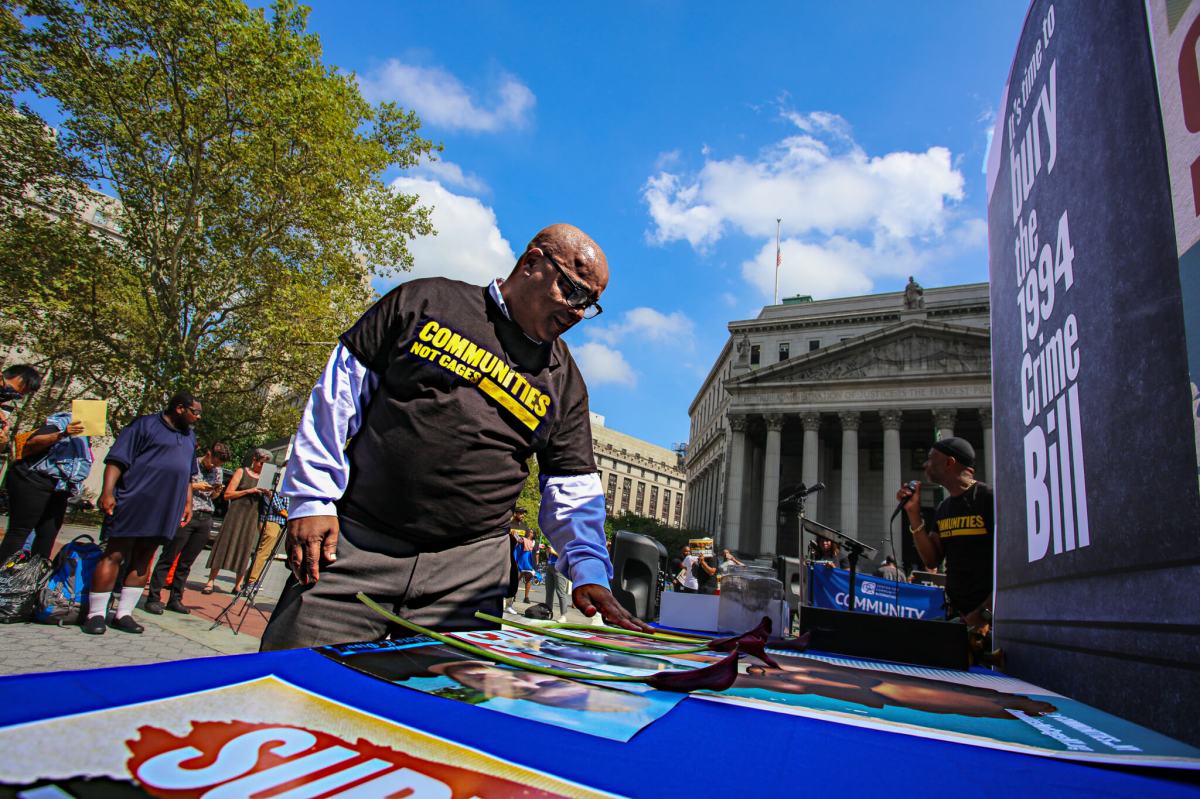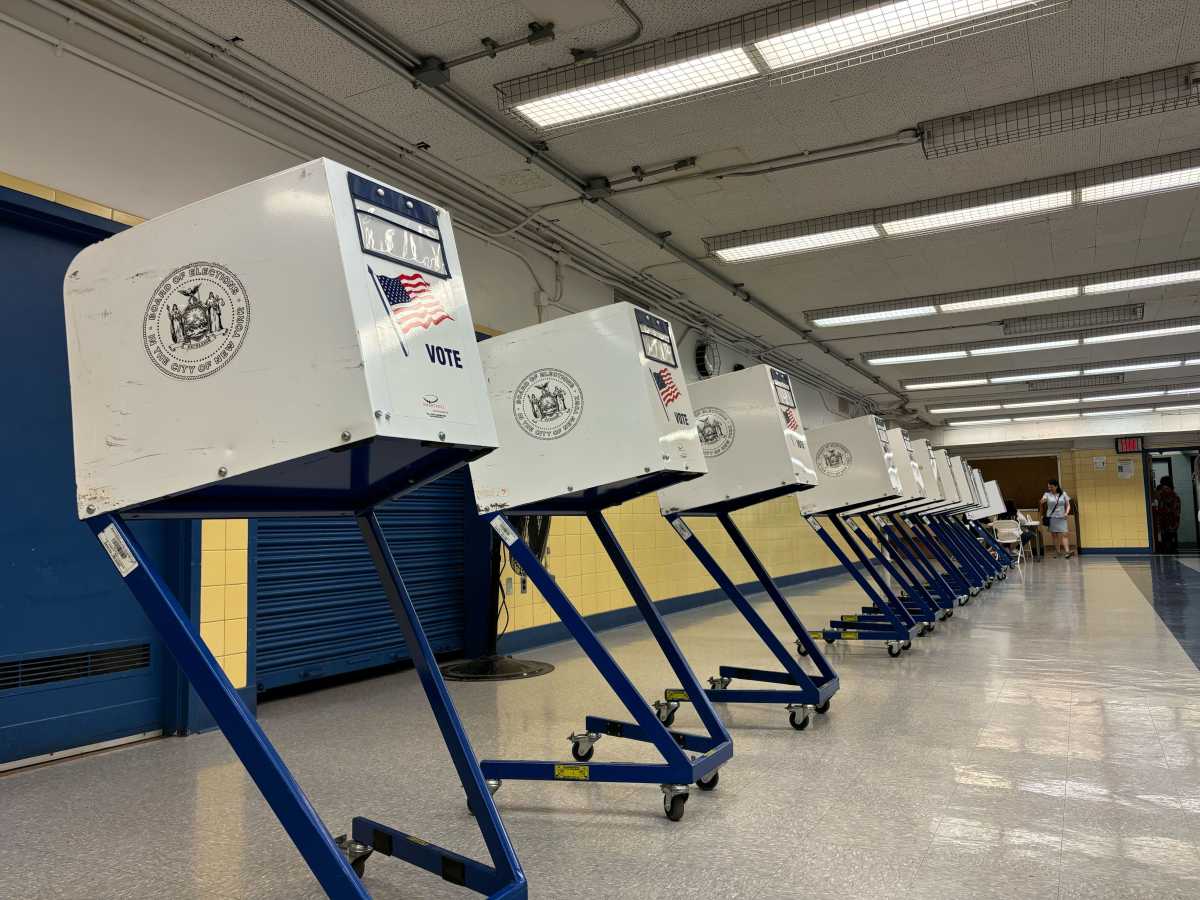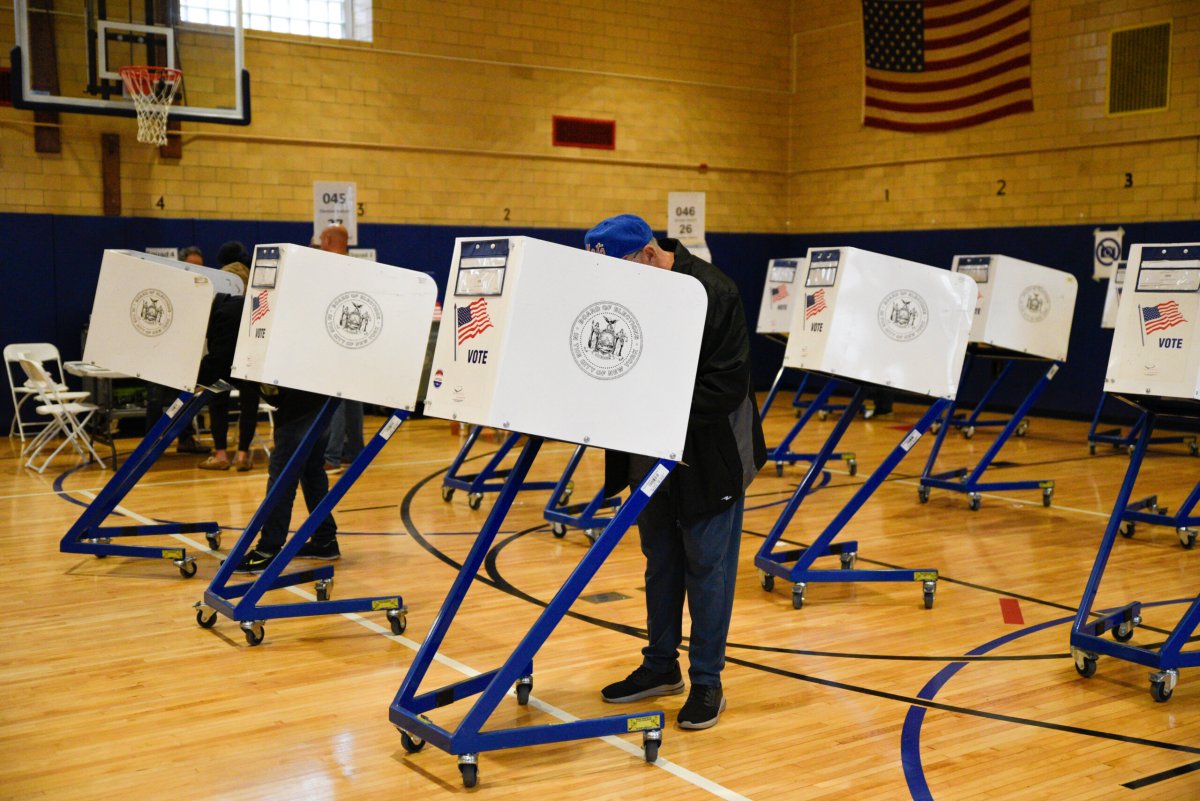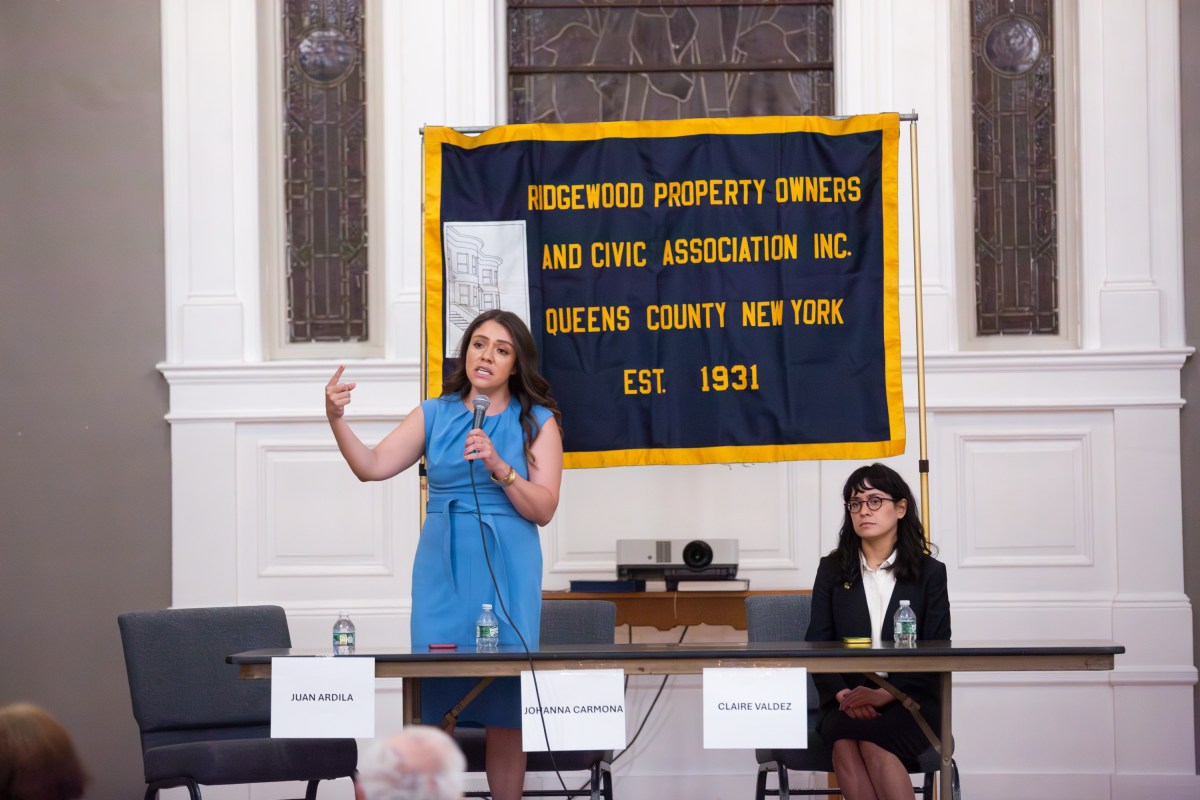While New York’s Democratic primary election on Tuesday was dominated by the ouster of progressive US Rep. Jamaal Bowman at the hands of moderate Westchester County Executive George Latimer, the night also held other notable results across the Big Apple.
Bowman, who has represented much of Westchester County and a slice of the Bronx for nearly four years, lost his seat Tuesday night to Latimer by nearly 17 percentage points in a race that garnered national attention. Latimer’s resounding victory followed weeks of speculation leading up to Election Day that Bowman would not be able to retain his seat.
But while progressives came up short in NY16, they had mixed success in Assembly races throughout the city.
Most of the contests for Albany’s lower chamber were won by incumbents, with a couple of open seats going to candidates backed by the political establishment in their respective areas.
Primaries are often the main event in New York elections given the high Democratic voter enrollment in the five boroughs, which means most Democrats do not face serious competitors in the November general election.
Below are three takeaways from New York’s 2024 Democratic primaries for Congress and the state legislature.
‘A failure to read the room’
The central issue in the NY16 race quickly became Israel’s war with the terror group Hamas in the Gaza Strip. The Israeli military campaign, which followed Hamas’ Oct. 7 attack on the Jewish state, has killed over 37,000 Palestinians, according to the Gaza Health Ministry, and displaced millions more from their homes.
Bowman, like most left-wing pols, has been fiercely critical of Israel’s bombing campaign on and ground invasion of Gaza, often calling the operation a “genocide.” Latimer, on the other hand, has been so ardently pro-Israel, that he has refused to criticize the country’s unpopular leader: Prime Minister Benjamin Netanyahu.
Bowman’s anti-Israel stance not only invited a massive amount of spending by the pro-Israel lobbying group — the American Israel Public Affairs Committee (AIPAC) — but also seemed to be out of step with a heavily Jewish district.

Basil Smikle, head of Hunter College’s public policy program and former chair of the state Democratic Party, said Bowman failed to “read the room” when it came to his outspoken anti-Israel stance.
Specifically, Smikle said, Bowman suffered from not being able to balance his left-leaning ideology on Israel and other issues with the more centrist stance of many Westchester voters.
“You have to represent your constituency regardless of your personal feelings or your connection to any kind of larger political or ideological group,” Smikle said. “Your job is to represent your district and there was a failure of that.”
Furthermore, Smikle said, Westchester has a very organized and loyal Democratic Party, which has been focused on getting President Biden reelected in November. Latimer campaigned on supporting Biden and his agenda, while Bowman has consistently criticized the president’s leadership.
“Democrats that are very active, particularly in Westchester County, really want more consensus around driving a message that allows Biden to win and for Democrats to win the House,” Smikle said.
‘Mixed bag’ for progressives
Bowman is the first member of the left-wing “squad” to lose their Congressional seat since the group first formed in 2019, marking a substantial blow to the progressive movement. Still, his defeat was not indicative of how progressives at large fared on Tuesday night.
The most notable progressive victory was that of union organizer Claire Valdez in Assembly District 37 — which covers Queens neighborhoods including Long Island City, Sunnyside and Ridgewood.
Valdez, who was backed by the Democratic Socialists of America (DSA), won the race with 58% of the vote, compared to her main competitor Johanna Carmona, who finished at 32%. She will replace the incumbent Juan Ardila, who only garnered 10% of the vote after his Assembly tenure was torpedoed by sexual assault accusations leveled at him last year.

At the same time, Eon Huntley, the DSA-backed candidate in central Brooklyn’s Assembly District 56, narrowly lost to incumbent Assemblymember Stefani Zinerman. Huntley, a retail worker, finished the night with 47% of the vote to Zinerman’s 53%, with a little under 800 votes separating the two.
Even though the DSA saw success in the area in 2018 and 2020, Zinerman’s campaign was propelled by strong support from House Democratic Leader Hakeem Jeffries and state Attorney General Letitia James.
Democratic Strategist Trip Yang called progressives’ uneven performance a “mixed bag.”
“The progressives won a huge race with Claire Valdez in an open seat, she not only won, she won by a double-digit margin,” Yang said. “It showed that progressives still dominate the politics of western Queens. But, at the same time, there are other races where progressives struggled.”
Incumbents held strong
Except for Bowman, no progressive incumbents lost Tuesday night. More broadly, incumbents — especially those with establishment backing — were expected to win, and had a strong showing Tuesday night.
Assemblymember Emily Gallagher easily turned back a challenge from Anathea Simpkins in Assembly District 50, which covers Greenpoint and parts of Williamsburg — emerging with a roughly 55% lead.
Assemblymember Eddie Gibbs managed to hold onto his East Harlem and Upper East Side seat in the face of a tough challenge from Manhattan Community Board 11 Chair Xavier Santiago.
And in the East Bronx, longtime Assemblymember Michael Benedetto overcame progressive Jonathan Soto for the second time in two years.

Two open seats in Manhattan, Assembly Districts 69 and 70, were both captured by frontrunners who had support from each area’s elected heavyweights.
In the 69th District, which covers the Upper West Side, Micah Lasher, former policy director for Gov. Kathy Hochul, came out on top of a five-way race to take over the seat vacated by retiring Assembly Member Danny O’Donnell — who notably did not endorse him. Laster, who won with 52% of the vote, had the support of Upper West Side political powerhouses like US Rep. Jerry Nadler and former city Comptroller Scott Stringer.
“Micah was kind of like a pseudo-incumbent because he’s been so established in New York politics and the politics of the West Side of Manhattan,” Yang said. “He got endorsed by the really preeminent political endorsements that you could have on the West Side.”
Similarly, District 70 was won by another pseudo-incumbent: Jordan Wright — the son of Manhattan Democratic Party boss Keith Wright. The seat, which covers much of central Harlem, opened because longtime Assemblymember Inez Dickens is retiring.
“Jordan Wright was the only candidate that had a real coalition of endorsers, most of the Black elected officials in Central Harlem coalesced behind Jordan Wright pretty early on,” Yang said. “He really was the frontrunner from the jump and there was no rival candidate that really emerged.”
Read more: Consulate Vandalism Spurs NYPD Investigation





































